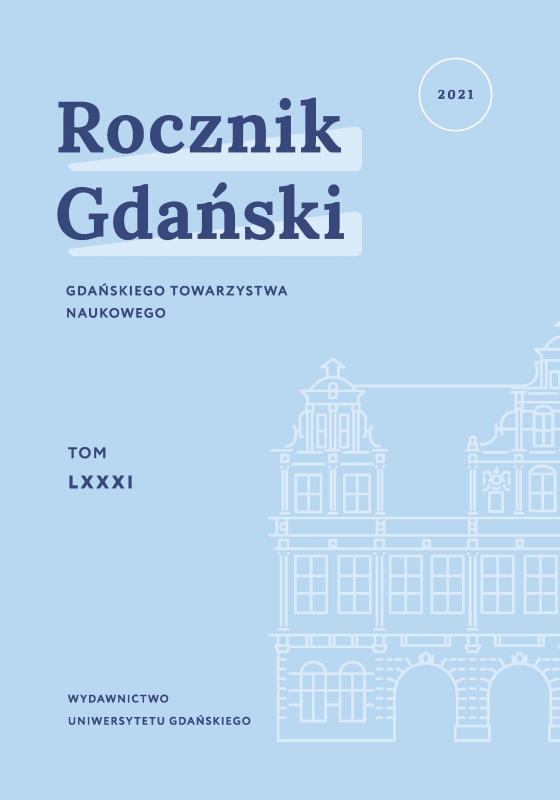Michał Szuca (1886–1940). Rekonesans badawczy w oczekiwaniu na biografię
Michał Szuca (1886–1940): A preliminary study for a biography
Author(s): Leszek MolendowskiSubject(s): Local History / Microhistory, History of Education
Published by: Wydawnictwo Uniwersytetu Jagiellońskiego
Keywords: Michał Szuca; Brusy; Chojnice; Free City of Gdańsk; Collegium Marianum; Pelplin; Freiburg im Breisgau; Jan Karnowski; Aleksander Majkowski; Franciszek Kręcki; Fr Kamil Kantak; Discount Bank in Bydgosz
Summary/Abstract: Michał Szuca was a scholarship holder of the Society for Support of Education (Towarzystwo Pomocy Naukowej) in Chełmno and a student of distinguished educational institutions: Collegium Marianum in Pelplin and boys’ gymnasiums in Chojnice and Nakło. Member of the Philomath movement and would-be Catholic priest, from an early age he was associated with the Young Kashubians movement and its prominent representatives, including Jan Karnowski, Aleksander Majkowski and Franciszek Kręcki. Szuca was a promoter of Kashubian magazines and an advocate of Kashubian issues as well as those of Polish Pomerania. A graduate of the University of Freiburg im Breisgau and the Jagiellonian University in Cracow, he came to the Free City of Gdańsk as a doctor of economy in 1919. For many years of his professional career Szuca was associated with banks and financial institutions (also in Bytom and Opole); he worked, among others, as the director of the Gdańsk branch of the Discount Bank (Bank Dyskontowy) in Bydgoszcz, and Bank of Industry and Trade (Bank Przemysłu i Handlu) in Warsaw. He sat on the supervisory board of the Credit Cooperative (Spółdzielnia Kredytowa) in Gdańsk, and was a co-founder of the Pomeranian Installations Company (Towarzystwo Instalacyjne Pomorskie), which participated in the construction of Gdynia. In the years 1933–1939, he served as the financial advisor to the Gdańsk Port and Waterways Board (Rada Portu i Dróg Wodnych). Szuca was actively involved in the life of the Polish community in the Free City of Gdańsk: he was an accounting teacher at the Polish Trade Schools of the Educational Society (Polskie Szkoły Handlowe Macierzy Szkolnej), one of the seven founders of the Society of Friends of Arts and Sciences in Gdańsk (Towarzystwo Przyjaciół Nauki i Sztuki w Gdańsku), an activist of the Community Union of Poles in the Free City of Gdańsk (Gmina Polska Związek Polaków w Wolnym Mieście Gdańsku) and the Educational Society in Gdańsk (Macierz Szkolna w Gdańsku), and a member of the rowing section of the Gedania sports club. Arrested on 1 September 1939, he was kept at the Victoriaschule and in prison at today’s Kurkowa Street. He was executed on Good Friday, 22 March 1940 in the vicinity of the concentration camp in Stutthof. After the war, in 1946, he was buried in the Honour Row of the Gdańsk Zaspa cemetery, along with Fr Feliks Bolt, Franciszek Kręcki, Antoni Lendzion, Władysław Pniewski and many other representatives of the Polish intelligentsia of the Free City of Gdańsk.
Journal: Rocznik Gdański
- Issue Year: 2021
- Issue No: 81
- Page Range: 71-101
- Page Count: 31
- Language: Polish

